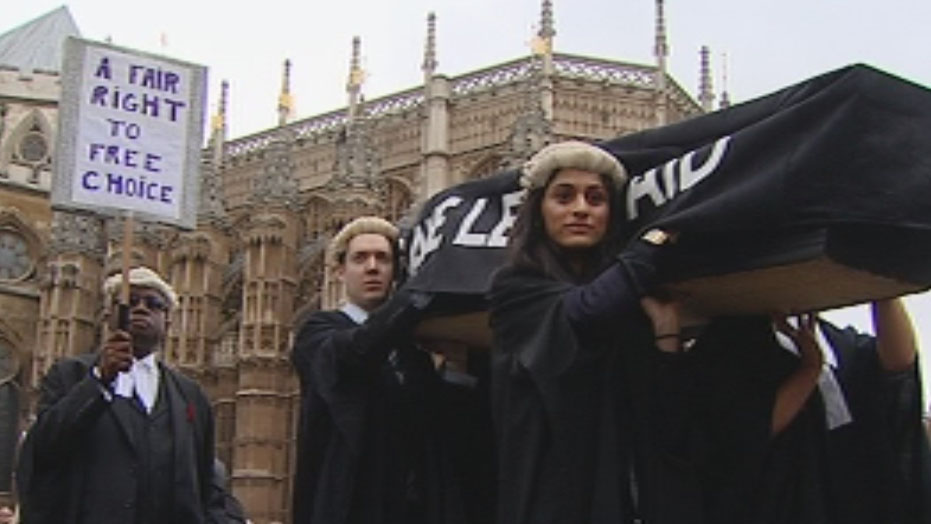Lawyers protest against proposed legal aid changes
Up to a thousand lawyers are expected to stage a protest against planned cuts in criminal legal aid at Parliament today.

Many fear Chris Grayling’s proposals will amount to a conveyor belt system of legal services and throw thousands of specialist lawyers onto the scrapheap.
The Justice Secretary’s plan is to reduce the number of ‘providers’ by 75 per cent, allow firms to profit from economies of scale, and save £220m from the annual legal aid budget.
Lawyers argue contracts will end up with large companies like the trucking firm Stobarts which also runs a legal service that promises to “link members of the public and businesses direct to a barrister without needing to employ a solicitor.”
Many say it will end up with a two-tier legal system, where those on legal will be denied a choice of legal representative.
Owen Farmer knows the value of choice. It saved his teenage son Oscar from conviction and prison.
The 17-year-old was arrested during the kettling of students in Whitehall at the anti-tuition fee protests, released without legal advice, then charged with violent disorder.
A police officer's claim he was kicked in the head was rejected ultimately by the appeal judges.
Mr Farmer told Channel 4 News the plans strike at the heart of fair play: "It's going to create a bigger gap between those who have got money and can choose expertise and those people in an unfortunate situation who need to have a solicitor to defend themselves, but don't have the right to choose which solicitor."
In a statement Justice Secretary Chris Grayling said: “We will continue to uphold everyone’s right to a fair trial – these proposals will not affect that in any way … With one of the most expensive legal aid systems in the world – about £1bn a year is spent just on criminal legal aid – we can no longer avoid examining how to deliver better value for every penny of taxpayers’ money we spend.”
Threat to trafficking victims
The consultation Transforming legal Aid also contains to what’s termed a residency test, a proposal to restrict legal aid on the grounds of connection to the UK. Today the Catholic Church has written to the minister warning that victims of trafficking and domestic abuse will be denied legal support in court under such a plan.
Commenting on the proposals, spokesman for the social arm of the church, Caritas Social Action Network, Liam Allmark said in a statement:
“We hope that this is an oversight and that the government will reaffirm its previous commitment to exempt victims of human trafficking and domestic abuse. Withdrawing legal aid in such cases would amount to a denial of access to justice for those in greatest need of legal support.”
Some lawyers are using the case of Jean Paul de Menezes, a Brazlian electrician who was shot dead by police on a train at Stockwell Tube station, when mistaken for a terrorist suicide bomber. His family would have been denied legal aid, they say, and so representation at the inquest and in proceedings for compensation.